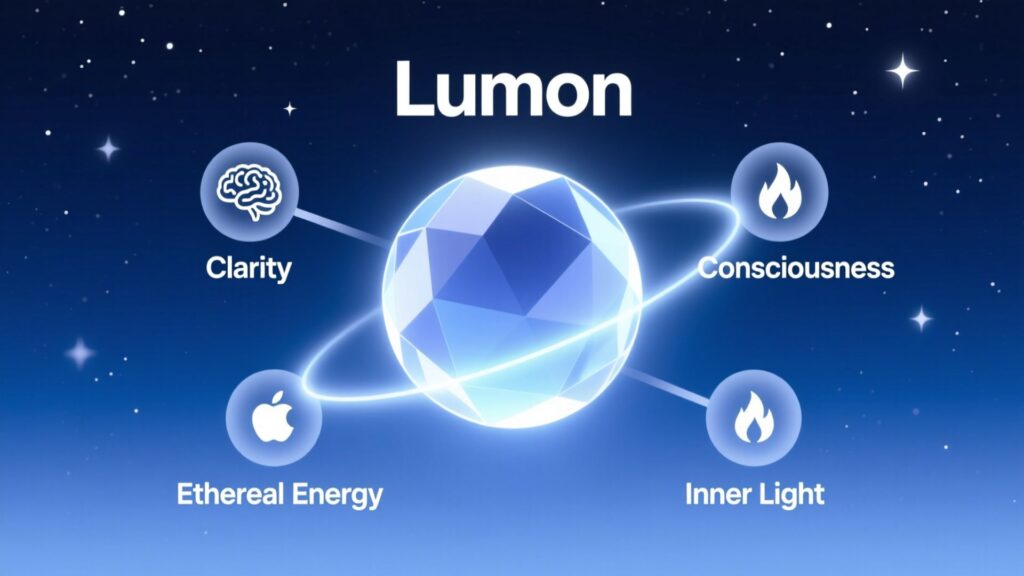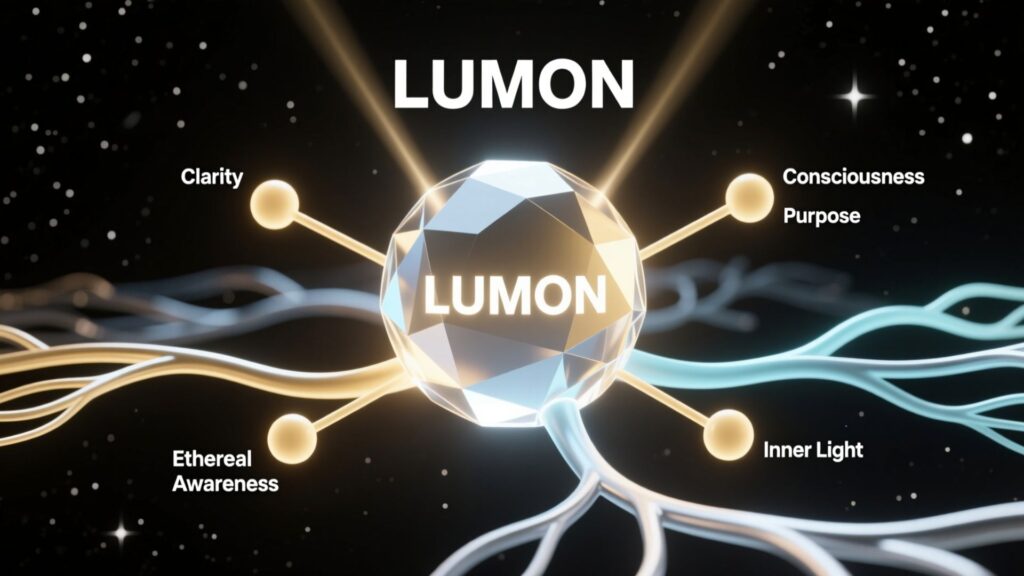Language isn’t static it shifts, evolves, and adapts to culture. New words and old roots alike take on fresh meanings as they pass through media, technology, and collective imagination. One such term that has drawn attention in recent years is “Lumon.” You’ve likely heard it in conversations about television, culture, or even branding. But what does it really mean?
In this guide, we’ll explore the Lumon definition, its cultural and linguistic roots, its tone and implications, and how it is used across different contexts. By the end, you’ll know exactly how to define Lumon and when (or when not) to use it.
What Does Lumon Mean?

The Lumon meaning isn’t straightforward because it carries both literal and symbolic layers. At its simplest, the word resembles “lumen,” the Latin root for light or illumination. In fact, “lumen” is still used in modern English to measure brightness.
Over time, the term “Lumon” has grown beyond its linguistic foundation. In text and conversation, it can represent:
- Light and illumination (inspired by its Latin root).
- Corporate identity, often tied to fictional organizations.
- Dystopian control, as portrayed in modern media.
- Cold professionalism, detached and robotic.
The most prominent use of the word today comes from the Apple TV+ series Severance. In the show, Lumon Industries is a mega-corporation that symbolizes control, surveillance, and the loss of individuality. Because of this, many people now associate “Lumon” with corporations that feel larger than life, faceless, and sometimes menacing.
So when you see or hear “Lumon” in text, the meaning often depends on context. It might suggest brightness, or it could be a tongue-in-cheek reference to dystopian corporate culture.
Historical and Cultural Background
To fully understand the Lumon definition, it’s important to trace its cultural history.
Linguistic Roots
- “Lumon” echoes the Latin “lumen,” which directly translates to light.
- Words like “illuminate” and “luminary” share this root.
- In historical usage, light has symbolized knowledge, purity, and divine presence.
Fictional Associations
The modern surge of the term ties back to Lumon Industries from Severance. The company’s sterile hallways, cryptic rituals, and cult-like culture turned “Lumon” into shorthand for corporate dystopia. Fans and critics often use “Lumon” to critique real-world businesses that feel secretive or oppressive.
Branding Connections
While Severance popularized the word, “Lumon” also appears in small-scale branding. A handful of startups, lighting companies, and consultancies use it, likely because of its association with “light.” For them, the word signals innovation, clarity, or brilliance.
Different Interpretations of Lumon
The beauty and complexity of language lies in interpretation. Depending on the situation, “Lumon” can mean very different things. Here are the most common ways people interpret it:
- Corporate Identity: A business name or entity, real or fictional.
- Metaphorical Light: Symbolizing enlightenment, clarity, or brilliance.
- Dystopian Symbolism: Evoking thoughts of control, manipulation, or surveillance.
- Internet/Slang Usage: Referenced in memes, fan theories, or critiques of workplace culture.
- Creative Writing Tool: Used to convey futuristic or sterile environments.
This duality light vs. controlis why “Lumon” resonates so strongly. It can inspire or unsettle, depending on how it’s framed.
Tone and Implications of Lumon
Words carry tone, and Lumon meaning shifts depending on context. Here’s a closer look:
- Positive Implications: When tied to light or illumination, “Lumon” feels inspiring, futuristic, or enlightened.
- Neutral/Corporate Implications: In branding, it can appear sleek, professional, and serious.
- Negative Implications: Thanks to pop culture, “Lumon” often signals coldness, detachment, or dystopia.
For example:
- Saying “a Lumon-style office” may suggest modern, sleek design.
- Saying “this company feels like Lumon” implies robotic policies or cult-like culture.
Tone matters. The same word can feel glowing or sinister depending on its frame.
Synonyms and Alternatives to Lumon
Sometimes you want the flavor of “Lumon” without using the word itself. Depending on tone, here are polished alternatives:
Polished or Professional
- Enlightened
- Ultra-professional
- Corporate-coded
Mysterious or Futuristic
- Synthetic
- Glowing
- Robotic
Dark or Dystopian
- Stoic
- Cult-like
- Ideologically Committed
Neutral or Controlled
- Structured
- Programmed
- Systematic
These synonyms help writers set the tone without over-relying on the word “Lumon.”
When to Use and When to Avoid Lumon

Knowing when to use a word is as important as knowing its meaning.
Best contexts to use “Lumon”:
- Writing about Severance or other fictional corporations.
- Describing something sterile, dystopian, or overly corporate.
- Adding metaphorical weight to creative writing.
When to avoid “Lumon”:
- Academic or technical writing, where clarity is essential.
- Business settings where you want to avoid unintended dystopian undertones.
- Everyday communication where simpler words suffice.
If you’re unsure, ask: Will “Lumon” make my meaning clearer or more confusing?
Choosing the Right Alternative
A practical way to decide: match the word to the tone you need.
- For inspiration: Use enlightened or luminary.
- For critique: Use corporate-coded or cult-like.
- For futuristic feel: Use synthetic or glowing.
Here’s a quick decision table:
| Tone Needed | Suggested Term | Why It Works |
|---|---|---|
| Inspiring/Positive | Enlightened, Luminary | Evokes light and clarity |
| Neutral/Professional | Ultra-professional, Structured | Suggests order and polish |
| Futuristic/Cold | Synthetic, Robotic | Feels advanced but detached |
| Critical/Dystopian | Cult-like, Ideologically Committed | Signals control and manipulation |
Real Examples of Lumon in Context
Context makes meaning clear. Here are examples where “Lumon” has been used, along with interpretations:
- Television Dialogue: In Severance, “Lumon Industries” represents a controlling force. Interpretation: Corporate dystopia.
- Corporate Analysis: Critics describe real companies as “Lumon-like.” Interpretation: Faceless bureaucracy.
- Literature/Creative Writing: A sci-fi author names a sterile facility “Lumon.” Interpretation: Cold futuristic design.
- Internet Slang/Memes: Users joke “My office is basically Lumon.” Interpretation: Workplace monotony.
- Critical Essays: Academics use “Lumon” as shorthand for capitalist control. Interpretation: Ideological critique.
- Branding Example: A small consultancy called Lumon highlights innovation. Interpretation: Light and brilliance.
- Philosophical Writing: “Lumon represents the paradox of light and control.” Interpretation: Symbolic duality.
- Casual Conversation: “This feels very Lumon.” Interpretation: Stoic or robotic tone.
- Academic Analysis: Comparative essays use “Lumon” in symbolic frameworks. Interpretation: Ideological systems.
- Dystopian World-building: Fictional governments use “Lumon” to show sterility. Interpretation: Faceless governance.
Comparison Table: Lumon vs Alternatives
Here’s a side-by-side look:
| Term | Tone/Feel | Best Use Case | Risk of Misuse |
|---|---|---|---|
| Lumon | Corporate/Dystopian | Fiction, critique | Feels cold or robotic |
| Enlightened | Positive/Intellectual | Inspirational writing | May sound pretentious |
| Stoic | Serious/Emotionless | Formal or restrained tone | Can feel overly rigid |
| Cult-like | Controlling/Negative | Critiques, analysis | Too extreme in casual use |
| Glowing | Futuristic/Positive | Creative writing | Sometimes vague |
Final Takeaways
To define Lumon is to recognize that it isn’t just one thing. Its meaning depends on history, media, and cultural context.
- At its root, “Lumon” echoes light and illumination.
- In pop culture, it has become a symbol of corporate dystopia.
- The tone shifts: sometimes professional, sometimes robotic, sometimes cult-like.
- Alternatives exist choose them wisely depending on context.
In the end, “Lumon” is a word that reflects our cultural tension between light and control, inspiration and conformity. Whether you use it in writing, branding, or critique, the key is intentionality.
Bugti is the founder of Quoethint.com, a hub for English language tips, writing advice, and grammar guidance. With years of experience in English studies and a passion for clear communication, Bugti created this platform to make grammar and writing easy to understand for everyone.
